 Turnip sculptures amaze tourists in Qingdao
Turnip sculptures amaze tourists in Qingdao Chinese ship formation conducts live fire training in West Pacific
Chinese ship formation conducts live fire training in West Pacific
 China comes in third at figure skating team event
China comes in third at figure skating team event
 China's teenager skater Yan shines at his Olympic debut
China's teenager skater Yan shines at his Olympic debut
 Taiwan-born actor stars on US TV series
Taiwan-born actor stars on US TV series
 Chinese Lunar New Year gift from abroad
Chinese Lunar New Year gift from abroad Chinese champions of Winter Olympic Games
Chinese champions of Winter Olympic Games  Zhang Yimou fined 7.48 mln for over-production
Zhang Yimou fined 7.48 mln for over-production
 Top 10 timeless female Chinese stars
Top 10 timeless female Chinese stars
NANJING/TAIPEI, Feb. 11 -- Chiefs of cross-Strait affairs from the Chinese mainland and Taiwan met formally for the first time since 1949 on Tuesday afternoon.
Zhang Zhijun, head of the State Council Taiwan Affairs Office (SCTAO), held a formal meeting with Wang Yu-chi, Taiwan's mainland affairs chief, who arrived in Nanjing, capital of east China's Jiangsu Province, on Tuesday morning as part of a four-day visit.
At their meeting, the two agreed to open a regular communication channel between their departments, the result of deepening mutual political trust on the basis of the 1992 consensus, said Zhang.
"I believe, with this arrangement, we will improve exchanges, understanding and mutual trust, and better handle outstanding problems in cross-Strait exchanges," he said.
When explaining the mechanism, Wang told a press conference after the meeting that senior officials of the two departments could "just pick up their mobile phones and talk" instead of setting up a special hot line.
Zhang also accepted Wang's invitation to visit Taiwan.
The mechanism will not replace talks between the mainland Association for Relations Across the Taiwan Straits (ARATS) and its Taiwan counterpart the Straits Exchange Foundation (SEF), which focus on detailed affairs and cross-Strait agreements. Nor will not change the way other departments contact each other.
Zhang Nianchi, director of the Shanghai Institute for East Asian Studies, told Xinhua that the arrangement is in line with the One China principle and will play a different role from the ARATS-SEF talks.
"They will not collide with each other. The cross-Strait affairs departments talk about bigger and more general topics," Zhang said. "At this meeting, they will talk about the most urgent cross-Strait issues."
Liu Xiangping, deputy head of the Institute of Taiwan Studies at Nanjing University, said that the new arrangement should help the ARATS-SEF talks be more effective.
Wu-ueh Chang, professor with the graduate institute of China studies at Taiwan's Tamkang University, told Xinhua that it was a good prelude to tackling political issues and perhaps to meetings between senior leaders.
"We can not expect too many achievements in one night. They will have to work harder on many issues," he said.

 Special Coverage: Sochi Winter Olympic Games
Special Coverage: Sochi Winter Olympic Games 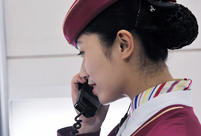 A day of a female high-speed train chief attendant
A day of a female high-speed train chief attendant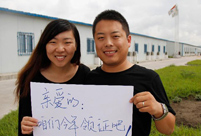 New Year greetings from Chinese nationals in Africa
New Year greetings from Chinese nationals in Africa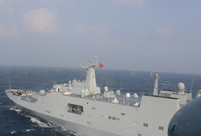 PLA navy conducts landing drills in South China Sea
PLA navy conducts landing drills in South China Sea 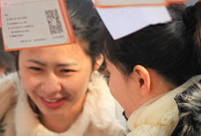 Blind date fair in Hangzhou
Blind date fair in Hangzhou  Highlights of Chinese New Year celebrations around the world
Highlights of Chinese New Year celebrations around the world  How do the Chinese spend their money during Spring Festival?
How do the Chinese spend their money during Spring Festival? 'Milk Tea' girl hosts Spring Festival gala of universities in U.S.
'Milk Tea' girl hosts Spring Festival gala of universities in U.S. 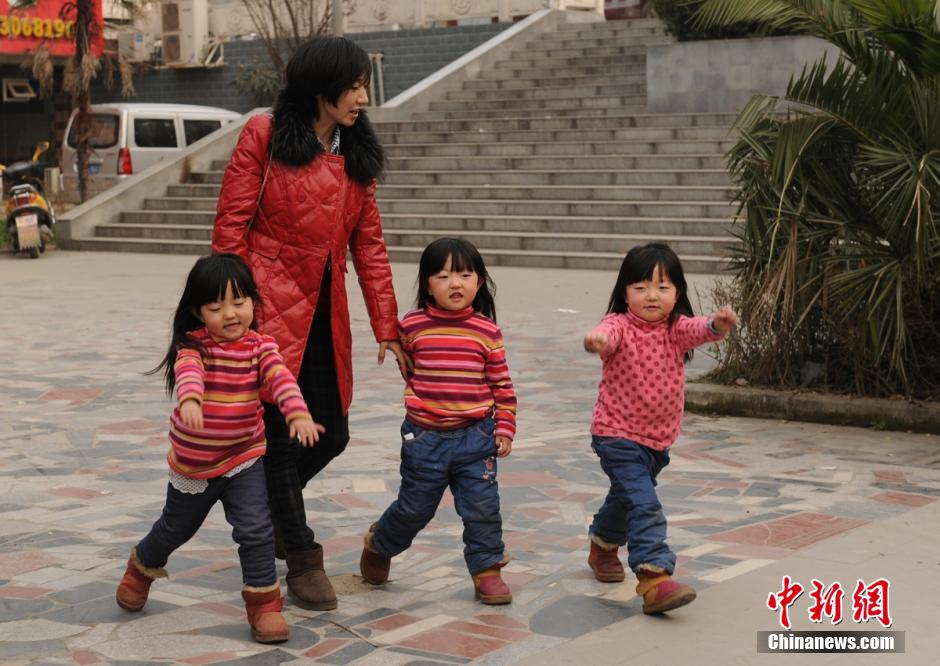 Brave mother fights cancer, enjoys Spring Festival with her triplets
Brave mother fights cancer, enjoys Spring Festival with her triplets President Xi attends opening ceremony of Sochi Winter Olympics
President Xi attends opening ceremony of Sochi Winter Olympics Highlights of opening ceremony of Sochi Winter Olympic Games
Highlights of opening ceremony of Sochi Winter Olympic Games Snowscape in Chinese New Year
Snowscape in Chinese New Year Interesting horse figures in life
Interesting horse figures in life  Top 20 most beautiful Chinese stars
Top 20 most beautiful Chinese stars  Top 10 Chinese films in 2013
Top 10 Chinese films in 2013Day|Week|Month